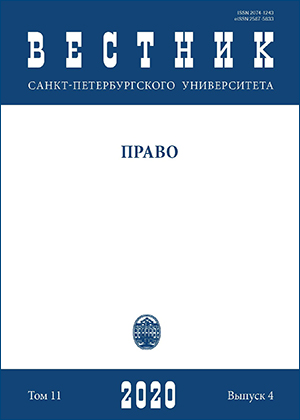Seizure of objects, substances and materials before the initiation of criminal proceedings: Procedural grounds, legal consequences, problems and ways to solve them
DOI:
https://doi.org/10.21638/spbu14.2020.407Abstract
Problems at the stage of the initiation of criminal proceedings, both in the criminal process and in criminalistics, have always been perceived as acutely relevant. After all, it is at this stage of criminal proceedings that the formation of the evidence base begins where as a rule, the collection, documentation and subsequent research of material objects (objects, substances and materials) both seized in the course of investigative actions, and received in the course of other actions, can be conditionally called non — procedural. Practice shows that law enforcement officers refer to the Federal law “On Police”, The Code of Administrative Offences of the Russian Federation, and the norms of the Federal Law “On Operational and Investigative Activities” to justify the legality and legitimacy of their actions, which, according to the authors, is very controversial, since these normative sources do not contain the appropriate grounds. This article deals with issues related to the seizure of material objects — items, substances and materials that are important for the investigation of crimes, in cases when a criminal case has not yet been initiated, which limits the possibility of using the procedural mechanisms provided for by criminal procedure legislation implemented at the stage of preliminary investigation. The authors are not restricted to criminal procedural institutions and consider the problem of seizures in the context of administrative law and legislation governing investigative activities.
Keywords:
the removal of items, substances and materials, the initiation of criminal proceedings, investigative actions, operational investigative activities, procedural activities in applying measures of administrative coercion
Downloads
References
Downloads
Published
How to Cite
Issue
Section
License
Articles of "Vestnik of Saint Petersburg University. Law" are open access distributed under the terms of the License Agreement with Saint Petersburg State University, which permits to the authors unrestricted distribution and self-archiving free of charge.






